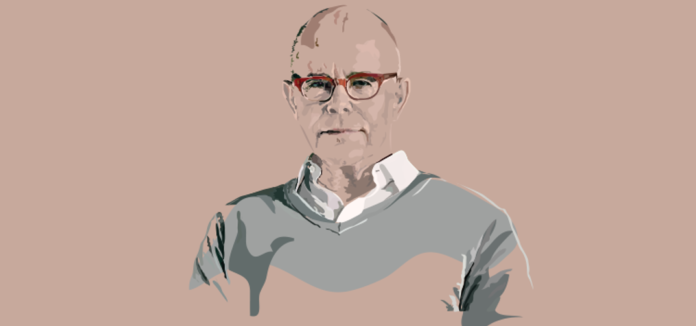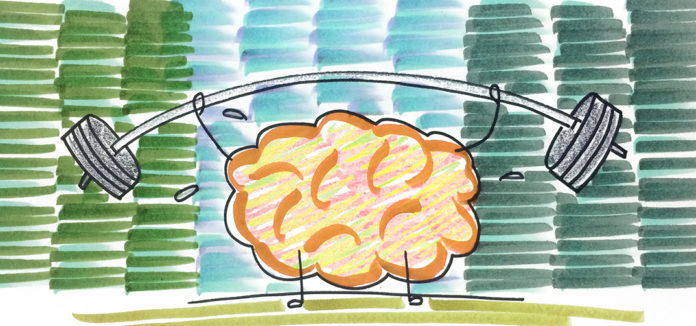Bringing food and fashion together, co-founder of Cherry Bombe, Kerry Diamond, dishes on the gorgeous new cookbook, pet peeves, favorite works of art and fictional crushes.
Q & A With Dr. Boardman: How To Mend A Broken Heart
Q: A recent breakup has left me struggling to move on. How do I get to a stronger place besides waiting it out?
Breakups are painful. In fact, a study by researchers at Columbia University and the University of Michigan showed that the regions of the brain activated by physical pain are the very same areas activated by the emotional pain of a failed relationship. The scientists concluded, “These results give new meaning to the idea that rejection hurts.”
While there is no quick fix for a broken heart, there are strategies that might help. In a series of experiments, Harvard Business School researchers Michael Norton and Francesca Gino revealed that people who engage in rituals—for example, burning photos—recover more quickly and report feeling better than those who don’t.
Whatever ritual you choose, make it deliberate, intentional, and actionable. The key is to engage in a behavior and take control, which mitigates sadness and increases well-being. Just believing that you are doing something to help yourself feel better will, in fact, help you feel better. You (and your brain) will be in less pain.
This article originally appeared in Marie Claire.
I wish you all the best,
Dr. Samantha Boardman
No More Howling At The Moon: A Popular Myth Debunked
Ideas about the moon’s influence on human beings are ancient and widespread, so much so that even a majority of health professionals consider lunar cycles a significant factor in mental health. There are stories from all over the world about strange and fantastic things that happen during the full moon beyond the bristling fur and snarling maw of the werewolf. In fact, the words “lunacy” and “lunatic” have the same etymological root as “lunar.”
Werewolf jokes aside, a study from researchers in Quebec, Canada, claims to debunk the myth that the full moon has an affect on people’s psychology and behavior. Scientists evaluated patients at a hospital in Montreal who came to the emergency room with the same complaint: unexplainable chest pains. Many of these patients also had a history of panic attacks, anxiety conditions, or mood disorders, but when incidences of their problems were compared to a lunar calendar, the researchers could not establish a link. Patients were no more or less likely to suffer from psychological imbalances when the moon was full than when it was a mere sliver or completely invisible.
The study’s director, Dr. Genevieve Belleville, hopes to re-characterize this folk wisdom as a “misperception” that “could, on the one hand, color [health professionals’] judgment during the full moon phase; or on the other hand, make them less attentive to psychological problems that surface during the remainder of the month.”
It isn’t completely ridiculous to believe that the moon influences our lives, even if we aren’t sprouting hair and dodging silver bullets once a month. We know the moon’s gravitational pull is responsible for the movement of our oceans’ tides and some scientific research shows there may be a relationship between the lunar cycle and earthquakes. Still, the Quebecois scientists’ point is clear: leave the great silver orb to her night sky and focus your attention here on earth.
I wish you all the best,
Dr. Samantha Boardman
Bevy Smith
The Page Six TV host cuts to the chase in signature style — work hard, look forward, be kind and don’t underestimate the power of six-inch heels.
What Mentally Strong People Do On Tough Days
We all have emergency plans. If the electricity goes out, there’s a stockpile of flashlights, batteries and candles. But what happens when your mood fails? What’s your bad day backup plan? It’s a question I ask people all the time.
Michele Phillips, a performance coach in Piermont, N.Y., and author of Happiness Is a Habit, has a group of friends who have dubbed themselves the Village. “I can call them anytime my day is going badly, and they will change my frame of mind,” she says. She recalls sitting in a bar in Colorado after her divorce, feeling lonely and, she says, “like I had ‘loser’ written on my forehead. I called a Village friend, and she said, ‘Look around: You’re in Vail, skiing!’ She helped me shift the thinking from ‘poor me’ to ‘lucky me.’”
The article got me thinking about what enables people to function, even on bad days. From my experience, mentally strong people know what strategies work best for them. Calling a friend, meditating for 15 minutes, going for a walk, watching their favorite movie are all possibilities. The key is having a “go-to” strategy to get oneself through a tough time.
Martin Seligman makes the case:
“Therapists can use information from the way snipers…are trained. It can take about 24 hours for a sniper to get into position. And then it can take another 36 hours to get off the shot. This means that snipers often haven’t slept for two days before they shoot….”
Of course, one option would be to give them stimulant medication to keep them awake and alert but that is not how snipers are trained.
Instead, you keep them up for three days and have them practice shooting when they are dead tired. That is, you teach snipers to deal with the negative state they’re in: to function well even in the presence of fatigue.
Instead of exclusively lessening negativity, the most effective strategies involve building positive experiences as well. Seligman explains:
“As a therapist, once in awhile I would help a patient get rid of all his anger and anxiety and sadness. I thought I would then get a happy patient. But I never did. I got an empty patient. And that is because the skills of flourishing — of having positive emotion, meaning, good work, and positive relationships — are something over and above the skills of minimizing suffering.”
Knowing how to handle tough times isn’t just about just making oneself less miserable, it is also about explicitly cultivating the good things in life.
Every day may not be good, but there is something good in every day. Your assignment is to find it.
I wish you all the best,
Dr. Samantha Boardman







